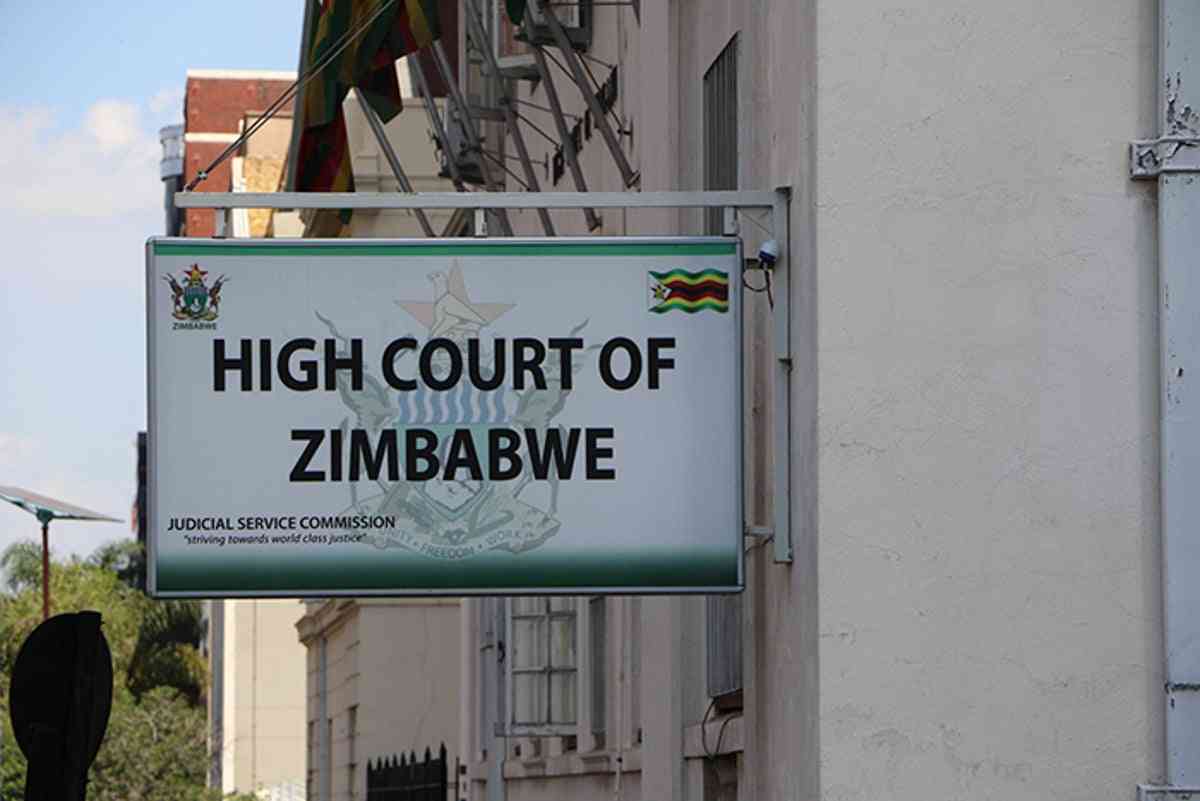
A HIGH Court judge has ordered the Home Affairs ministry and prison authorities to ensure inmate holding cells are habitable.
The ruling came after a Mutare resident Michael Mundandishe, represented by lawyers Passmore Nyakureba and Nigel Muchinguri from the Zimbabwe Lawyers for Human Rights, dragged police and prison authorities to court protesting against inhumane conditions at prison cells in the town.
Mundandishe said he was shocked by conditions of cells at Mutare Central Police Station and Remand Prison when he was arrested on August 1, 2024.
He was arrested by security agents following a constituency development meeting at a house belonging to Chikanga’s ward 19 councillor in the border city.
In his application, Mundandishe cited Police Commissioner-General Stephen Mutamba, ministers Kazembe Kazembe (Home Affairs) and Ziyambi Ziyambi (Justice), officer commanding Manicaland province, officer-in-charge Mutare Central Police as well as Prisons and Correctional Service Commissioner-General Moses Chihobvu as respondents.
In his ruling, High Court judge Justice Sijabuliso Siziba demanded immediate intervention to make the cell and prison conditions habitable for inmates.
“It is declared that the applicant was detained under a Mutare Central Police Station on August 1, 2024 (which) constituted inhumane and degrading treatment in violation of section 50(1)(c) of the Constitution of Zimbabwe,” part of the ruling read.
“The conditions of detention in police holding cells at Mutare Central Police Station are inhumane and degrading and the conditions at Mutare Remand Prison are inhumane and degrading.
- Fresh land invasions hit Whitecliff
- Pomona cash row escalates
- Border Timbers targets European markets
- SA name strong A side for Zim tour
Keep Reading
“It is ordered that the first to the fourth respondents are directed to take immediate measures to ensure holding cells at Mutare Central Police Station have toilets that have a flushing mechanism from within as well as washing basins and toilet paper.”
They were ordered to ensure that bathing facilities at Mutare Remand Prison are screened off for the dignity of inmates when bathing.
Several opposition politicians have in the past lobbied the government to rehabilitate police and prison cells so that they are habitable.
Many of the opposition politicians have been incarcerated mostly on trumped-up charges, which they have described as intended to
In 2019, then MDC activist Paddington Japajapa bemoaned the state of cells at the Harare Central Prison, where he spent time until he was freed on bail in August of that year.
He told the media that during the time he was detained at the correctional facility, there was one bucket placed inside the cell, which inmates used to relieve themselves, adding that back then, the bucket was in a rundown state.
“At Harare Central Prison, the rights of detainees are not being respected at all,” Japajapa told local media.
“The prison was built in 1910 and the ablution facilities have not been renovated or replaced up to now.
“Imagine 40 years after independence, we are still using the bucket system, and when it comes to water, we were given less than four litres for drinking, bathing and washing clothes per day.
“When it comes to safety of inmates inside the prison, the situation leaves a lot to be desired.”
A Rights Behind Bars study in 2018 by the Zimbabwe Human Rights NGO Forum established that there was overcrowding in some Zimbabwean prisons with high risks of disease outbreaks.
The other challenges faced in prison are shortages of detergents, soap, body lotion and other washing aides, which are rarely supplied to inmates who have to heavily rely on what they receive from relatives and well-wishers.
Back in 2020, at Mutare Farm Prison, there were reports of lice terrorising prisoners, with suggestions raised for fumigation to fix the situation, while at Tabudirira Satellite Prison in Mutoko, it was reported that there were no toilets in cells.
In the same year, an inmate revealed in a High Court action that Chikurubi Maximum Security Prison was facing a major outbreak of diarrhoea, TB and hepatitis B.
Prisoner Tautai Dzodzo said the facility was designed to carry 1 360 inmates, but at the time had over 2 000 prisoners.
He said at least 500 inmates share two toilets, and that the prison complex sometimes goes with no running water in cases of power outages that affect pumping.
“The shortage of water has resulted in an outbreak of serious diseases including diarrhoea, hepatitis B and tuberculosis.
“Regrettably, prison officials do not separate sick prisoners from the healthy ones,” Dodzo said then in an affidavit filed at the Harare High Court, seeking an order for prison authorities to be compelled to improve conditions.










